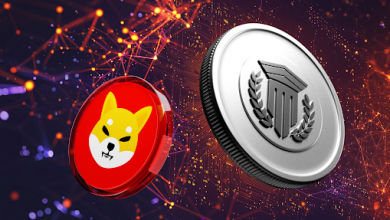The Leading Digital Tech Trends for 2025

n the rapidly evolving digital landscape of 2025, European businesses must stay abreast of emerging technologies to maintain a competitive edge. This article delves into the pivotal digital tech trends shaping the business environment, offering insights to help organizations navigate and thrive in this dynamic era.
1. Artificial Intelligence (AI) and Machine Learning (ML) Integration
AI and ML have transitioned from experimental technologies to integral components of business operations. Companies are leveraging AI-driven analytics to gain deeper customer insights, automate processes, and enhance decision-making. For instance, AI-powered chatbots and virtual assistants are improving customer service by providing real-time support and personalized experiences. Moreover, predictive analytics enable businesses to anticipate market trends and consumer behavior, facilitating proactive strategy formulation.
2. The Proliferation of 5G Connectivity
The rollout of 5G networks across Europe has revolutionized business communications and operations. With significantly higher data speeds and reduced latency, 5G enables seamless integration of Internet of Things (IoT) devices, supports remote work with high-definition video conferencing, and enhances real-time data processing capabilities. Industries such as manufacturing, healthcare, and logistics are experiencing increased efficiency and innovation due to 5G adoption.
3. Expansion of the Internet of Things (IoT)
IoT technology continues to expand, connecting a vast array of devices and systems. Businesses are utilizing IoT solutions to monitor operations, manage supply chains, and improve customer experiences. For example, smart sensors in manufacturing plants track equipment performance, enabling predictive maintenance and reducing downtime. In retail, IoT devices analyze shopper behavior, allowing for personalized marketing and inventory optimization.
4. Emphasis on Cybersecurity and Data Privacy
As digital integration intensifies, so do concerns about cybersecurity and data privacy. European businesses are prioritizing robust cybersecurity measures to protect against increasingly sophisticated cyber threats. Implementing advanced encryption, multi-factor authentication, and regular security audits has become standard practice. Additionally, compliance with regulations such as the General Data Protection Regulation (GDPR) ensures that companies handle personal data responsibly, maintaining customer trust and avoiding legal repercussions.
5. Rise of Remote Work Technologies
The global shift towards remote work has accelerated the adoption of digital collaboration tools. Platforms offering video conferencing, project management, and virtual collaboration have become essential. Businesses are investing in technologies that facilitate seamless communication and collaboration among distributed teams, ensuring productivity and cohesion. Moreover, virtual reality (VR) and augmented reality (AR) are emerging as tools for immersive remote training and meetings, bridging the gap between physical and virtual workspaces.
6. Growth of E-Commerce and Digital Payment Systems
E-commerce continues its upward trajectory, with businesses expanding their online presence to meet consumer demand. Innovations in digital payment systems, including mobile wallets and contactless payments, have streamlined transactions, offering convenience and security to customers. Additionally, the integration of AI in e-commerce platforms provides personalized shopping experiences, enhancing customer engagement and loyalty.
7. Adoption of Cloud Computing Solutions
Cloud computing has become a cornerstone of modern business infrastructure. European companies are migrating to cloud platforms to benefit from scalability, cost-efficiency, and remote accessibility. Cloud-based solutions support collaborative work environments and provide robust data storage and recovery options. Furthermore, the emergence of hybrid cloud models offers businesses flexibility in managing workloads, balancing on-premises and cloud resources to meet specific needs.
8. Implementation of Blockchain Technology
Blockchain technology is gaining traction beyond cryptocurrencies, finding applications in various business processes. Its decentralized nature ensures data integrity and security, making it valuable for supply chain management, where transparency and traceability are crucial. Smart contracts—self-executing contracts with the terms directly embedded in code—are automating agreements, reducing the need for intermediaries, and enhancing efficiency in sectors like finance and real estate.
9. Focus on Sustainable Technologies
Sustainability has become a key consideration for businesses, driven by environmental concerns and consumer preferences. Companies are adopting green technologies, such as renewable energy solutions and energy-efficient systems, to reduce their carbon footprint. Implementing sustainable practices not only aligns with regulatory requirements but also enhances brand reputation and appeals to eco-conscious consumers.
10. Evolution of Digital Marketing Strategies
Digital marketing is evolving with the integration of advanced technologies. Artificial intelligence is enabling personalized content delivery, while data analytics provide insights into consumer behavior, informing targeted marketing campaigns. Social media platforms are leveraging augmented reality for interactive advertising, and influencer marketing continues to grow as brands collaborate with individuals who have significant online followings. These strategies are enhancing customer engagement and driving brand loyalty.
Staying informed about these digital tech trends is essential for European businesses aiming to remain competitive and innovative. Embracing these technologies can lead to improved operational efficiency, enhanced customer experiences, and sustainable growth in the digital age.
For more in-depth analysis and the latest updates on European business and finance, visit European Business Magazine.





